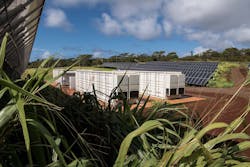Foss & Company Partners with Tokyo Gas America on 174 MW BESS Project Near Houston
Foss & Company, an institutional fund sponsor, has been named the exclusive tax equity provider for the Longbow Battery Energy Storage System (BESS) project in Brazoria County, Texas, near Houston. This project represents $118.5 million in Investment Tax Credits (ITCs) for Foss & Company.
Longbow BESS is a standalone BESS project featuring a capacity of 174 MW and 384 MWh. The project is being developed by Clean Capital Partners and is owned by Tokyo Gas America.
Longbow aims to benefit from the high volatility and arbitrage potential in the ERCOT-Houston region, and construction will commence in Q1 of 2024 with a targeted Commercial Operation Date in the summer of 2024.
“Longbow BESS represents a significant step forward in our commitment to providing clean and reliable energy solutions,” said Ken Kiriishi, SVP of Tokyo Gas America. “We aim to contribute to the sustainable energy future of the ERCOT-Houston region, delivering innovative and reliable power solutions to meet the growing demands of the market.”
About the Author
EnergyTech Staff
Rod Walton is head of content for EnergyTech.com. He has spent 17 years covering the energy industry as a newspaper and trade journalist.
Walton formerly was energy writer and business editor at the Tulsa World. Later, he spent six years covering the electricity power sector for Pennwell and Clarion Events. He joined Endeavor and EnergyTech in November 2021.
He can be reached at [email protected].
EnergyTech is focused on the mission critical and large-scale energy users and their sustainability and resiliency goals. These include the commercial and industrial sectors, as well as the military, universities, data centers and microgrids.
Many large-scale energy users such as Fortune 500 companies, and mission-critical users such as military bases, universities, healthcare facilities, public safety and data centers, shifting their energy priorities to reach net-zero carbon goals within the coming decades. These include plans for renewable energy power purchase agreements, but also on-site resiliency projects such as microgrids, combined heat and power, rooftop solar, energy storage, digitalization and building efficiency upgrades.
